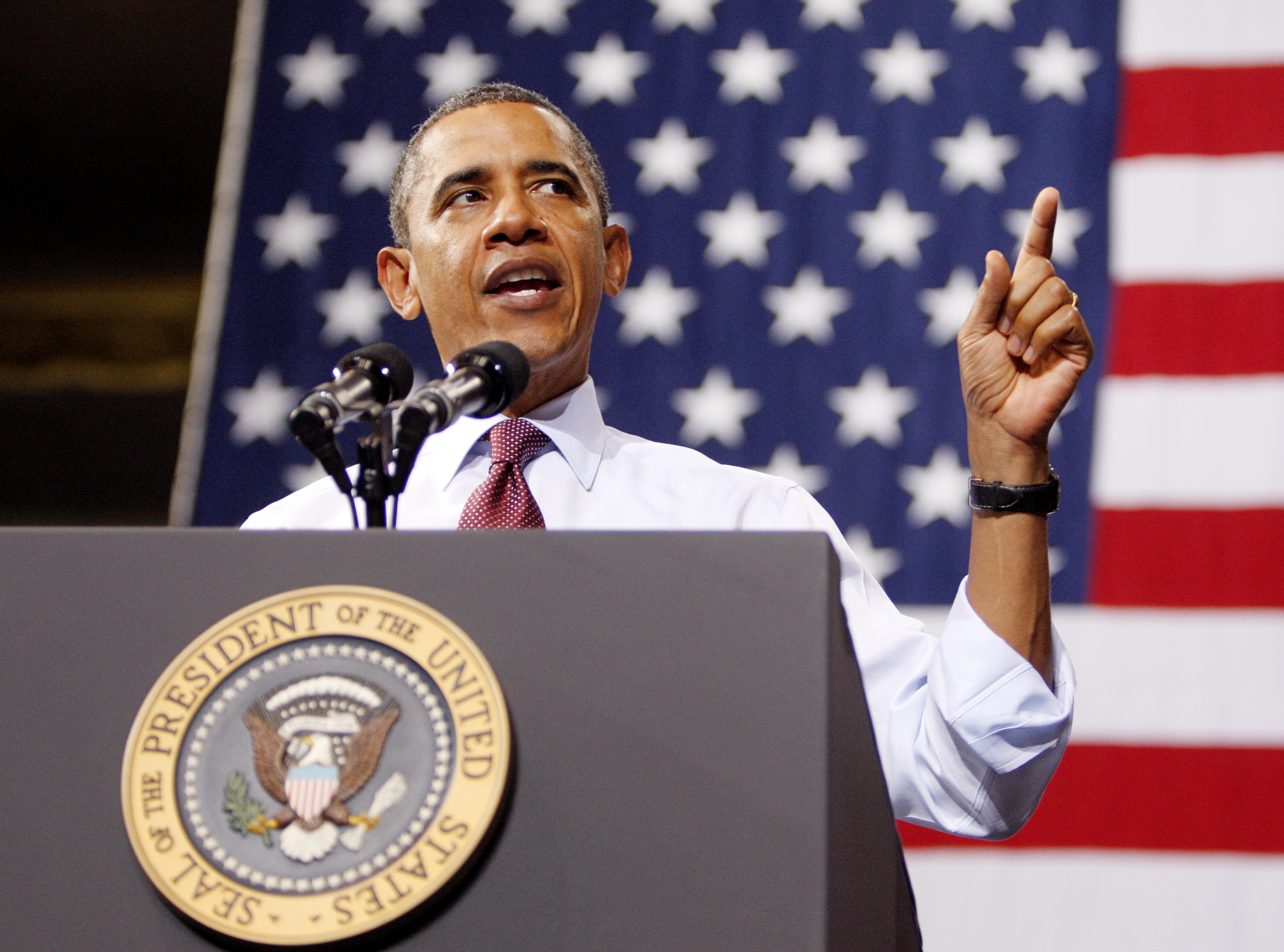By David Lightman and William Douglas
McClatchy Newspapers
WASHINGTON - President Barack Obama's jobs plan drew familiar partisan responses Thursday from Congress: Republicans criticized his initiatives while Democrats embraced them.
Throughout Obama's address to a joint session of Congress, Democrats leaped from their seats and applauded the president's plans, while Republicans sat. The response made it clear his initiatives face a tough road ahead in Congress.
There was, however, agreement on the nature of the economy's problem, and even some general consensus that it's worth cutting taxes and perhaps even extending jobless benefits.
Virtually everyone on Capitol Hill agreed that Congress and the White House need to craft some kind of job-creating program aimed at bringing down the nation's 9.1 percent August unemployment rate.
Republicans joined Democrats in giving Obama a standing ovation six different times - most enthusiastically when the president reminded them that the election is 14 months away, and "the people who sent us here ... they don't have the luxury of waiting 14 months" for economic help.
But common ground on details remained elusive, as the two sides retreated Thursday to their partisan corners, convinced that by sticking to their positions, they'll continue to strengthen their political bases - and be well positioned to gain strength in next year's elections.
"There are some people who believe that the next election will somehow bring about a huge new political alignment that will allow either Republicans or Democrats to get 100 percent of what they want in the way they want it," said Rep. Chris Van Hollen, D-Md. "It is a dangerous illusion that will put the long-term economic health of our nation at risk."
Congressional leaders talked about their yen for unity Thursday - but quickly signaled their reluctance to give in to the other side.
"The proposals the president outlined tonight merit consideration. We hope he gives serious consideration to our ideas as well," said House Speaker John Boehner of Ohio. "It's my hope that we can work together to end the uncertainty facing families and small businesses, and create a better environment for long-term economic growth and private-sector job creation."
Republicans want Obama to get behind broader efforts to lower taxes and revamp the government's regulatory system, instead of passing more piecemeal tax breaks and higher spending.
Senate Minority Leader Mitch McConnell, R-Ky., wanted the president to offer a plan that "built on the simple premise that if the American people are going to have control over their destiny, they need to have more control of their economy."
"The only way we can bring about a stable, long-term recovery is by shifting the center of gravity away from Washington and toward those who actually create jobs," he said.
In the House of Representatives, Majority Leader Eric Cantor, R-Va., alternated between accommodation and defiance.
He said he hoped Obama would retreat from positions "in which we either accept his bill or somehow we're (Republicans) un-American. I know that's been some of the rhetoric coming out of the White House lately."
"We do have disagreements; we're not going to agree wholly on how you get this economy back on track, we know that," Cantor said.
Still, Cantor said, "There are areas we can agree on," such as the need to cut taxes and help the unemployed.
He was less hopeful about an infrastructure bank. "I know the president will be focused on infrastructure spending, we've got ideas on how to address infrastructure spending," Cantor said.
But not with an infrastructure bank that Democrats have championed. The bank would help provide financing for infrastructure projects. Republicans fear it would require massive government spending.
"I'm wary of the suggestion of an infrastructure bank," Cantor said. "I am one who agrees with the notion that an infrastructure bank is almost like creating a Fannie and Freddie for roads and bridges." He was referring to troubled mortgage titans Fannie Mae and Freddie Mac.
Some Republicans were less polite, saying Obama showed little inclination to find common ground.
"What we have heard (from people back home) is that they are really weary of speeches," said Rep. Marsha Blackburn, R-Tenn.
"Big government, central planning has never worked. It didn't work in the Soviet Union. It's not going to work in this country, no matter how President Obama tries to put them in place," added Rep. Paul Broun, R-Ga.
Democrats, though, welcomed Obama's proposals.
Senate Majority Leader Harry Reid, D-Nev., lauded the president's approach and charged that should his plan falter, "the reason will be very clear, simply partisan politics. They (Republicans) think if they kill every jobs bill and stall every effort to revive the economy, President Obama will lose."
People don't want to hear economic theories and how debt reduction will eventually grow the economy, said House Assistant Democratic Leader Jim Clyburn of South Carolina.
When he was home over the August recess, he said, "People didn't want to hear a lot of fancy Washington talk about debt and deficits. They want to hear about jobs, about restoring the dignity of work. They want to work, and they want their government to work."
The Congressional Black Caucus also wants specific talk about issues that plague its constituencies.
Among its ideas: "Acknowledge the Depression-like unemployment crisis in the African-American community and articulate a targeted approach for job creation," the caucus wrote in a letter Thursday to Obama.
The caucus also wants Obama to address the jobs crisis without Congress' consent, such as with executive orders. "We cannot ignore the power you have as the president of the United States to issue directives that have broad authority and impact," the letter said.
There is one glimmer of hope that some kind of job-creating legislation will succeed this fall.
"We're all hearing the same things from our constituents back home," said Sen. Jon Kyl, R-Ariz. People want a stronger economy, he said.

